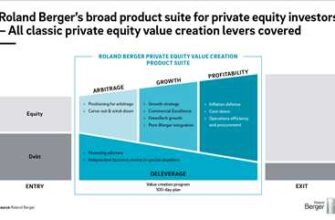
Starting your own Airbnb business can be a profitable venture, allowing you to provide a unique and personal experience for guests. These days, most travelers prefer the social and personalized feel of staying in an Airbnb rather than a traditional hotel. With the right approach and strategy, you can make a successful and profitable Airbnb business.
Here are the key steps to start your own Airbnb business:
1. Register and Create Listings: The first step is to register as a host on Airbnb and create listings for your property. Be sure to highlight the unique features, amenities, and attractions in your area to attract potential renters.
2. Learn the Airbnb Standards: Familiarize yourself with the Airbnb standards and guidelines to ensure your property meets the necessary requirements. Safety and security are of utmost importance for both you and your guests, so make sure to take the necessary precautions.
3. Understand the Financials: Before you start, it’s essential to understand the financial aspect of running an Airbnb business. Calculate the costs involved, including fees, taxes, and any additional services you provide. Make sure to charge a fair price that allows for a reasonable profit.
4. Focus on Guest Experience: To stand out from the competition, focus on providing an exceptional guest experience. Include amenities like free Wi-Fi, a fully equipped kitchen, and a comfortable living space. Consider adding little extras like welcome snacks or a personalized guide to local attractions.
5. Market Your Listings: Lastly, make use of social media and other online platforms to market your listings and attract more renters. Post high-quality photos, write enticing descriptions, and engage with potential guests to generate more bookings.
By following these steps and investing time and effort, you can start a successful and profitable Airbnb business. Remember, every guest is an opportunity to provide a memorable experience and turn them into loyal renters. Good luck!
- How to Start an Airbnb Business
- Learn How Airbnb Works
- 1 Registration Listing
- 2 Fees
- 3 Security
- 4 Guest Services
- 5 Tax
- FROM ZERO TO AIRBNB HERO: HOW TO START YOUR OWN PROFITABLE AIRBNB BUSINESS WITH LITTLE TO NO INVESTMENT
- 1. Learn How Airbnb Works
- 2. Focus on Your Property
- 3. Ensure Your Property Meets Airbnb Standards
- 4. Check Your Local Laws and Regulations
- 5. Provide a Seamless Guest Experience
- 6. Utilize Social Media and Other Marketing Channels
- 7. Consider Professional Photography
- 8. Charge Competitive and Reasonable Rates
- 9. Consider Extra Services or Add-Ons
- 10. Learn From Every Experience
- Three things to check
- Sources
How to Start an Airbnb Business
Starting an Airbnb business can be a profitable venture if you follow the right steps and have the necessary investment. Airbnb is a platform where hosts can list their properties and provide accommodations to renters. If you’re looking to start your own Airbnb business, here are five steps to get you started:
Step 1: Create an Airbnb Listing
The first step to starting your Airbnb business is creating a listing on the platform. You’ll need to provide details about your space, including its location, amenities, and any additional services you offer. It’s important to make your listing stand out by highlighting the unique features and attractions of your property.
Step 2: Focus on Social Media and Online Presence
To attract more renters, you’ll need to promote your Airbnb listing through social media and other online channels. Having a strong online presence can help you reach a wider audience and increase bookings. Learn about the most effective social media strategies and use them to boost your business.
Step 3: Learn about Local Laws and Regulations
Before starting your Airbnb business, it’s important to familiarize yourself with the local laws and regulations that apply to short-term rentals. Some areas may have restrictions or require registration, so make sure you comply with all necessary legal requirements.
Step 4: Provide a Safe and Secure Environment
Guests value their safety and security, so it’s essential to create a safe and secure environment within your Airbnb space. Make sure to provide proper lock systems, smoke detectors, and fire extinguishers. Also, consider investing in security cameras to enhance the safety of your guests and property.
Step 5: Charge Reasonable Rates and Fees
To attract more renters and make your Airbnb business profitable, charge reasonable rates and fees. Conduct market research to determine the average prices in your area, and set your rates accordingly. Take into account any additional expenses, such as cleaning fees or taxes, that may affect your bottom line.
By following these steps and putting in the necessary effort, you can start a successful Airbnb business with zero or little investment. Remember to provide exceptional customer service, maintain high cleanliness standards, and focus on creating a positive guest experience. With dedication and good management, your Airbnb business can thrive and bring you a steady stream of income.
Sources:
– https://www.airbnb.com/host/homes
– https://www.airbnb.com/host/hospitality
– https://www.airbnb.com/host/safety
– https://www.airbnb.com/host/responsible-hosting
– https://www.airbnb.com/host/policies
Learn How Airbnb Works
Starting an Airbnb business can be a profitable investment if you know how it works. Airbnb is a platform that connects hosts with renters looking for short-term accommodations. Through Airbnb, hosts can list their properties and provide a space for guests to stay during their visit.
When creating an Airbnb listing, there are a few things you need to consider. First, you’ll need to check the regulations in your area to make sure you’re allowed to rent out your property. Some areas have specific rules and standards for short-term rentals.
Once you’ve made sure you can legally rent out your space, you can start creating your Airbnb listing. You can include photos of your property, a description of the space, and a list of amenities you provide for guests. This could include things like Wi-Fi, heating, and more.
Airbnb also allows hosts to set their own prices and fees. You can choose how much you want to charge per night and any additional fees for cleaning or security deposits. Airbnb does take a small percentage of each booking as a service fee.
Once your listing is live, guests can book your space through the Airbnb platform. Hosts have the option to approve or decline each booking request. When a guest stays at your property, Airbnb handles the payment process, taking care of any necessary taxes.
As an Airbnb host, you have the opportunity to provide a unique experience for your guests. You can offer local recommendations for attractions and places to eat, making their stay more enjoyable. Some hosts even offer additional services, such as airport pick-ups or guided tours.
It’s important to note that hosting on Airbnb doesn’t always require a full-time commitment. Many hosts use Airbnb to rent out their space on a part-time basis, allowing them to earn extra income without a significant time investment.
Airbnb also provides a level of security for both hosts and guests. They have a verification process in place for new users, and hosts can review and rate guests. Additionally, Airbnb offers a Host Guarantee program, which provides some coverage in case of property damage.
If you’re considering starting an Airbnb business, it’s essential to educate yourself on how it works, the fees involved, and the regulations in your area. By focusing on guest satisfaction and providing a comfortable and welcoming space, you can create a profitable Airbnb business.
| 1 | Learn the regulations and standards in your area for short-term rentals. |
| 2 | Create an Airbnb listing with detailed descriptions and attractive photos. |
| 3 | Set your own prices and fees, taking into account Airbnb’s service fee. |
| 4 | Approve or decline booking requests from guests. |
| 5 | Provide a unique experience for guests with local recommendations and additional services. |
1 Registration Listing
When starting your own Airbnb business, the first step is to register as a host on the Airbnb platform. This will allow you to list your property and start accepting bookings from guests. The registration process is fairly simple and can be completed in a few easy steps.
To register as a host, you will need to provide some basic information about yourself and your property. This includes details such as your full name, contact information, and the address of the property you wish to rent out. You may also be required to provide proof of ownership or permission to rent the property.
Once your registration is complete, you can start creating your listing. This is where you will provide more detailed information about your property, including its amenities, attractions in the area, and any special rules or requirements.
When creating your listing, it’s important to focus on what makes your space unique and why guests would want to stay there. Highlight the most attractive features of your property and include high-quality photos to showcase the space. You can also list any additional services or amenities that you provide to guests, such as Wi-Fi, parking, or a laundry facility.
Airbnb has certain standards and guidelines that hosts must follow in order to create a successful listing and attract renters. These include things like maintaining a clean and safe environment, being responsive to guest inquiries, and providing accurate and up-to-date information about your property.
One of the key factors in starting a profitable Airbnb business is determining how much to charge for your rentals. Airbnb provides hosts with tools and resources to help them determine the optimal price for their listings. You can also check the prices of similar listings in your area to get an idea of what others are charging.
In addition to the nightly rate you charge, you may also have to consider other fees and expenses. These can include cleaning fees, service fees charged by Airbnb, and even local taxes. Some hosts choose to include these fees in the nightly rate, while others charge them separately.
Once your registration and listing are complete, you’re ready to start hosting guests! Airbnb provides a secure platform for guests to book their stays and for hosts to communicate and manage their bookings. You can also use social media and other channels to promote your listing and attract more guests.
Starting an Airbnb business can be an exciting and profitable venture. By following these steps, you can learn how to create a successful listing and provide a great experience for your guests. Whether you’re looking to make some extra income or start a full-time business, Airbnb can be a valuable investment opportunity.
2 Fees
When starting an Airbnb business, it’s important to understand the various fees involved. There are three main sources of fees that hosts need to be aware of: Airbnb fees, taxes, and other expenses.
Airbnb Fees: Airbnb charges hosts a service fee for each booking made through their platform. This fee is typically a percentage of the total booking amount and can vary based on factors such as the listing’s location and amenities. It’s important to read and understand Airbnb’s fee structure to ensure you know how much you’ll be paying for each booking.
Taxes: As with any business, you’ll be responsible for paying taxes on the income you generate from your Airbnb rentals. The specific tax requirements will vary depending on your location, so it’s important to research and understand your local tax laws. Consider consulting a tax professional to ensure you’re meeting all tax obligations and taking advantage of any available deductions.
Other Expenses: In addition to Airbnb fees and taxes, there may be other expenses associated with running your Airbnb business. These can include things like cleaning fees, maintenance costs, insurance premiums, and any other costs associated with providing a comfortable and safe space for your guests. It’s important to factor these expenses into your pricing strategy to ensure you’re generating a profit.
By taking the time to learn about and understand the fees associated with starting an Airbnb business, you can better plan and budget for your venture. Remember to focus on providing a high-quality listing that meets or exceeds guest expectations. By offering desirable amenities, maintaining high standards of cleanliness, and creating a welcoming environment, you can attract more bookings and generate higher profits.
3 Security
When starting your own Airbnb business, it is crucial to focus on security measures to ensure the safety of your guests and property. Here are three key security aspects to consider:
- Registration and Standards: Make sure to register your rental property and follow the local regulations and requirements. This includes obtaining any necessary licenses or permits, as well as adhering to health and safety standards.
- Creating a Safe Space: Prioritize the safety and comfort of your guests by implementing security measures in your rental space. This may include installing smoke detectors, fire extinguishers, and secure locks on doors and windows. Regularly check the functionality of these devices to ensure their effectiveness.
- Social Media and Listing Security: Be cautious when it comes to sharing information about your property on social media platforms or listing websites. Avoid disclosing personal details or specific locations that could compromise the security of your rentals. Additionally, be aware of potential scams or fake bookings and stay vigilant when communicating with guests. There are also third-party services available to provide an extra layer of security for your listings, such as verifying the identity of guests before allowing them to book your property.
By prioritizing security, you can create a safe and enjoyable experience for your guests while protecting your investment and business from potential risks. Remember, a secure and trusted environment is crucial to attracting guests, receiving positive reviews, and building a profitable Airbnb business.
4 Guest Services
When starting your own Airbnb business, it’s important to provide excellent guest services in order to stand out from competitors and ensure a profitable and successful venture. These services will not only help you attract more guests but also ensure that they have a memorable and enjoyable experience during their stay. Here are four essential guest services to include in your Airbnb listing:
- Amenities: Ensure that your rental space is equipped with all the necessary amenities to make your guests feel comfortable and at home. This includes basic essentials like clean linens, towels, toiletries, a fully equipped kitchen, and reliable internet access. Additionally, you can add extra amenities like a coffee machine, snacks, or a welcome basket to enhance your guests’ experience.
- Security: Your guests’ safety should be a top priority. Make sure your property has adequate security measures in place, such as lockable doors and windows, a safe for valuables, and a working smoke detector. You can also provide information about emergency contacts and local emergency services in case of any unforeseen incidents.
- Check-in/check-out process: Create a smooth and hassle-free check-in and check-out process for your guests. Provide clear instructions on how to access the property, including details about the lockbox or key location if applicable. Additionally, be responsive and available to answer any questions or address any concerns your guests may have during their stay.
- Local recommendations: Help your guests make the most of their stay by providing recommendations for nearby attractions, restaurants, and activities. This can be done through a welcome guide or by personally sharing your favorite spots in the area. By offering insider tips, you’ll not only enhance your guests’ experience but also help them discover hidden gems they may not have found on their own.
These guest services are just a few examples of what you can provide to create a positive and memorable experience for your guests. Remember that going above and beyond can result in glowing reviews and repeat bookings, so always strive to exceed expectations.
5 Tax
When starting your Airbnb business, it’s essential to understand the tax implications and obligations that come with it. Here are five things to keep in mind:
| 1. | Learn from Airbnb |
| One of the best sources of information on how taxes work in the Airbnb business is from Airbnb itself. They provide resources, guides, and even experts to help you navigate through the tax landscape. | |
| 2. | Know your tax hero |
| Consult a tax professional who specializes in short-term rentals. They can help you understand the specific tax laws and regulations that apply to your area and provide recommendations on how to best structure your business for tax purposes. | |
| 3. | Understand your obligations |
| As an Airbnb host, you may be required to collect and remit taxes on behalf of your guests. These taxes may include occupancy taxes, sales taxes, and other local taxes. Make sure you know the rules and regulations in your area and comply with them. | |
| 4. | Keep track of your income and expenses |
| It’s crucial to keep accurate records of your rental income and expenses. This will help you calculate your taxable income and determine your tax liability. Consider using accounting software or hiring a bookkeeper to make this process easier. | |
| 5. | Charge the right amount |
| When setting your rental rates, make sure to account for any taxes you are required to collect. You can either include the tax amount in your listing price or add it separately. Either way, it’s important to clearly communicate the total cost to your guests. |
By understanding and adhering to your tax obligations, you can ensure that your Airbnb business remains profitable and legally compliant. Taking the time to learn about taxes and consulting with professionals will give you peace of mind and help you avoid any potential issues in the future.
FROM ZERO TO AIRBNB HERO: HOW TO START YOUR OWN PROFITABLE AIRBNB BUSINESS WITH LITTLE TO NO INVESTMENT
Starting your own profitable Airbnb business doesn’t have to be a daunting task. With some careful planning and strategic steps, you can turn your property into a successful source of income. Here are the key steps to get you from zero to Airbnb hero:
1. Learn How Airbnb Works
Before diving into starting your own Airbnb business, it’s essential to understand how the platform works. The more you know about the registration process, fees, and fees, the better equipped you’ll be to navigate through it successfully.
2. Focus on Your Property
The key to standing out on Airbnb is to provide a unique and desirable space for your guests. Take the time to create attractive listings that highlight the best aspects of your property. Consider what amenities and services you can include that will set you apart from the competition.
3. Ensure Your Property Meets Airbnb Standards

To have a profitable Airbnb business, it’s crucial to meet the platform’s standards in terms of safety, cleanliness, and comfort. Make sure your property is well-maintained and comply with any legal requirements or local regulations.
4. Check Your Local Laws and Regulations
Before you start renting out your property, familiarize yourself with the laws and regulations governing short-term rentals in your area. Some locations may have specific requirements or even bans on Airbnb rentals. Ensuring compliance will save you from legal trouble in the long run.
5. Provide a Seamless Guest Experience
The success of your Airbnb business relies on positive guest experiences. Ensure your guests have an enjoyable stay by providing clear instructions, prompt communication, and addressing any concerns they might have. Go the extra mile to create a welcoming atmosphere and leave a lasting impression.
6. Utilize Social Media and Other Marketing Channels
Make use of social media platforms and other marketing channels to promote your Airbnb listings. Engage with potential guests, share attractive photos, and highlight the unique aspects of your property and surrounding area. This will help you attract more guests and ensure a continuous stream of bookings.
7. Consider Professional Photography
Investing in professional photography can make a significant difference in how your listing attracts potential guests. High-quality photos can showcase the best features of your property, making it more appealing and increasing your chances of higher occupancy rates.
8. Charge Competitive and Reasonable Rates
When setting your rental rates, consider the demand and competition in your area. It’s essential to find the right balance between profitability and attracting guests. Starting with competitive rates can help you establish your business and secure positive reviews.
9. Consider Extra Services or Add-Ons
To differentiate your Airbnb listing, consider providing additional services or add-ons. This could include airport transportation, special packages, or even guides to local attractions or events. Offering these extras can entice guests to choose your property over others and increase your potential revenue.
10. Learn From Every Experience
As you start your Airbnb business, there will be challenges and learning opportunities along the way. Pay attention to guest feedback, adapt your strategies when needed, and continuously strive to improve the guest experience. Each experience is a chance to learn and grow your business.
Starting your own profitable Airbnb business doesn’t have to be overwhelming. By following these steps and putting in the necessary effort, you can turn your property into a successful and lucrative venture. Good luck!
Three things to check
When starting your Airbnb business, there are three important things you should check before listing your property. These checks can help you ensure that your space is safe, profitable, and attractive to potential guests.
- Security: Your guests’ safety should be your top priority. Make sure your property meets all the necessary safety and security standards. Install proper locks, smoke detectors, and fire extinguishers. Also, consider investing in security cameras or alarm systems to provide an extra level of protection.
- Amenities and Attraction: To stand out from other listings, you need to provide guests with amenities that will make their stay more comfortable and enjoyable. Focus on those amenities that are most desirable in your area. For example, if you’re renting a property in a winter destination, ensure you have a good heating system. If you’re in a tourist hotspot, highlight attractions and activities nearby.
- Fees and Charges: Airbnb charges a variety of fees for hosts and guests. It’s important to understand these fees and factor them into your financial calculations. Take into account the host service fee, guest service fee, and any other fees that may apply. Additionally, some areas require hosts to register their rentals and pay local taxes. Make sure you know what these taxes and fees are, and include them in your pricing.
By checking for security, amenities and attractions, and fees and charges, you can ensure that your Airbnb business starts off on the right foot. These three things will help you create a profitable and successful listing that attracts guests and generates income. Remember to also learn from other successful hosts and use social media and online sources to gather more insights on how to make your own Airbnb business thrive.
Sources
Starting an Airbnb business can be a profitable investment that allows you to rent out your own space to guests. To learn more about how it works and how to start, there are a few key sources you can turn to:
1. Airbnb’s website: You can find information on creating and managing listings, fees and charges, and what you need to have in place to start hosting.
2. Social media and online forums: Join Airbnb host groups on platforms like Facebook to connect with other hosts and learn from their experiences. There, you can ask questions and get tips on everything from finding the right renters to providing amenities.
3. Local registration and tax authorities: Check with your local government for any registration or tax requirements you need to fulfill as an Airbnb host. Different areas may have different rules and regulations.
4. Security services: Airbnb provides its own security measures to ensure the safety of guests and hosts. You can learn more about their standards and what precautions to take to protect your property and your guests.
5. Attractions and amenities in your area: Focus on what makes your space stand out and what attractions or services you can provide to make it more appealing to guests. This could include nearby attractions, public transportation options, or a well-equipped kitchen.
Remember, starting an Airbnb business is not a full-time commitment. You can start with just one listing and learn as you go. With zero financial investment upfront and the potential to earn a little extra income, it’s a flexible opportunity that works for those with a little time to spare.










